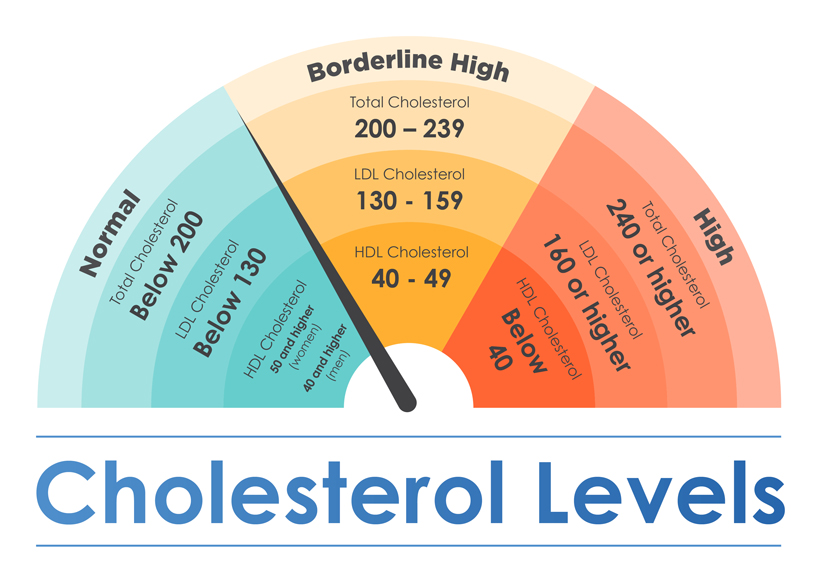
What is cholesterol?
Cholesterol is a waxy substance your liver makes to protect nerves and to make cell tissue and certain hormones. Your body also gets cholesterol from the food you eat. This includes eggs, meats, and dairy. There is “good” (HDL) cholesterol and “bad” (LDL) cholesterol. Too much bad cholesterol (LDL) can be bad for your health.
What is the difference between “good” cholesterol and “bad” cholesterol?
Good cholesterol is known as high-density lipoprotein (HDL). It removes cholesterol from the bloodstream. Low-density lipoprotein (LDL) is the “bad” cholesterol.
If your total cholesterol level is high because of a high LDL level, you may be at higher risk of heart disease or stroke. But, if your total cholesterol level is high only because of a high HDL level, you’re probably not at higher risk.
Triglycerides are another type of fat in your blood. When you eat more calories than your body can use, it turns the extra calories into triglycerides.
Changing your lifestyle (diet and exercise) can improve your cholesterol levels, lower LDL and triglycerides, and raise HDL.
Your ideal cholesterol level will depend on your risk for heart disease.
- Total cholesterol level – less than 200 is best, but it depends on your HDL and LDL levels.
- LDL cholesterol levels – less than 130 is best, but this depends on your risk for heart disease.
- HDL cholesterol levels – 60 or higher reduces your risk for heart disease.
- Triglycerides – less than 150 milligrams per deciliter (mg/dl) is best.







